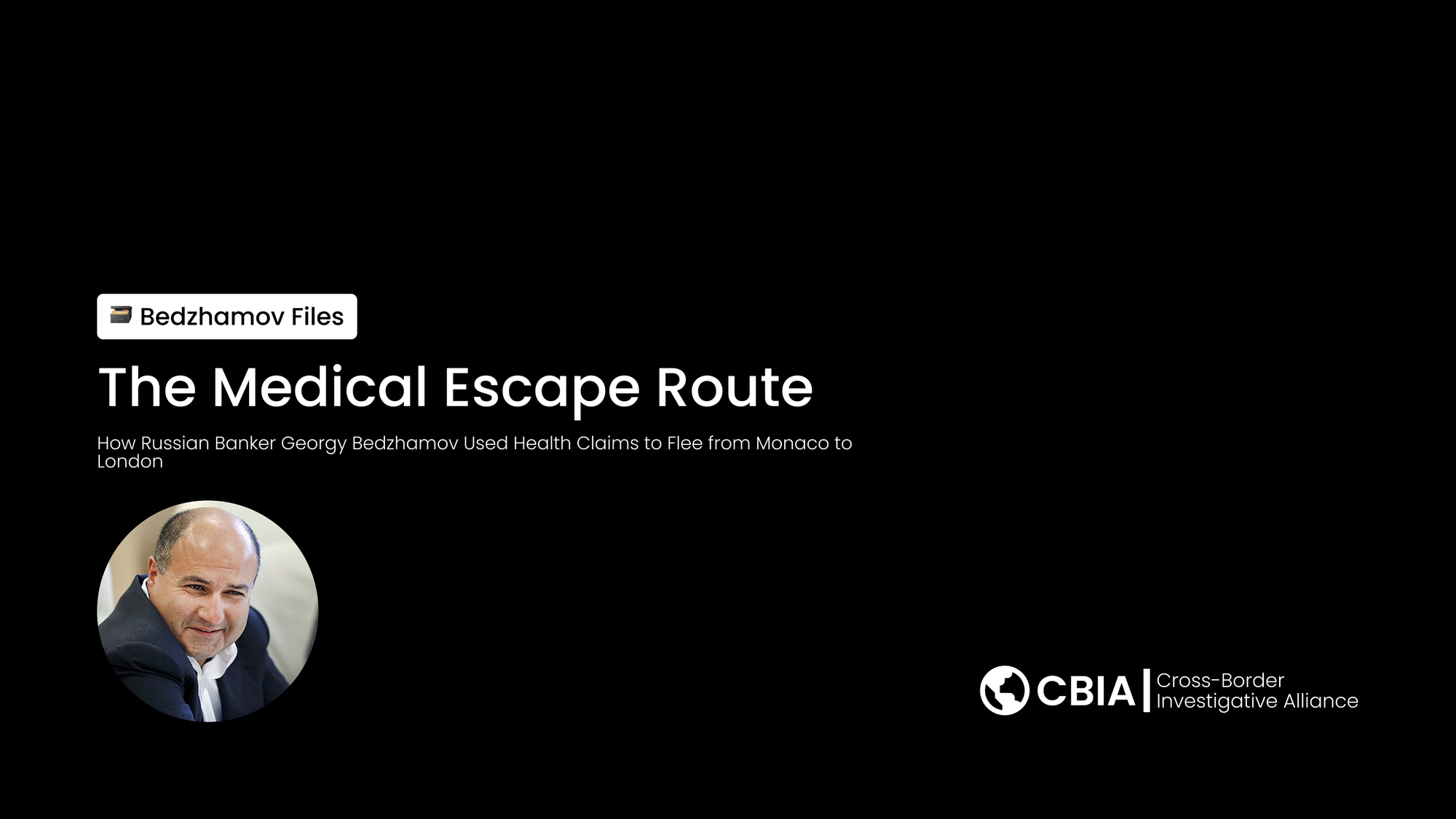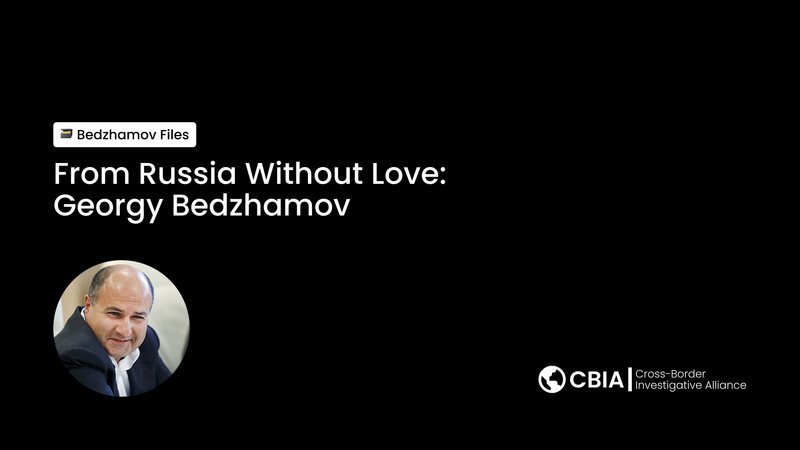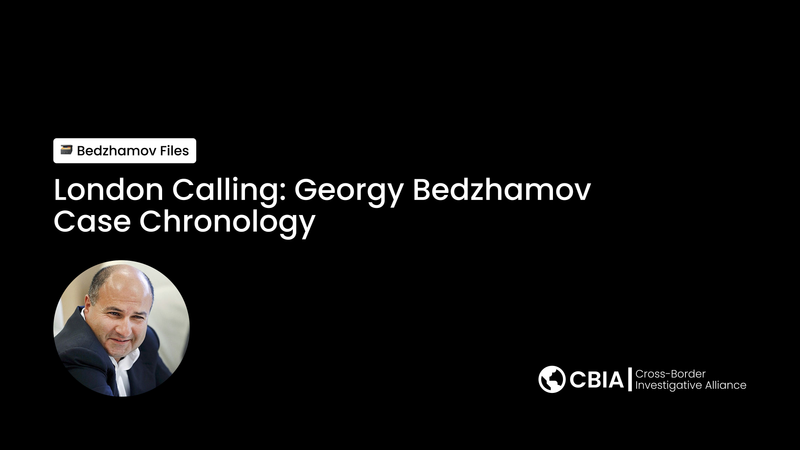The Medical Escape Route: How Russian Banker Georgy Bedzhamov Used Health Claims to Flee from Monaco to London

Georgy Bedzhamov, a Russian banker accused of orchestrating one of the largest banking frauds in recent Russian history, successfully evaded extradition from Monaco to Russia by citing medical grounds—then promptly travelled to London, where he has remained under asylum protection for years.
This carefully orchestrated sequence of events reveals how wealthy individuals can exploit legal loopholes and medical exemptions to escape justice across international borders, raising serious questions about the effectiveness of extradition treaties and international law enforcement cooperation.
The Banking Empire Collapse
Bedzhamov was the former co-owner of Vneshprombank, Russia's 40th largest bank by assets as of January 2016 [1]. The bank, where Bedzhamov's sister Larisa Markus served as president, became the center of a massive fraud investigation after Russian authorities appointed provisional administrators in December 2015.
Investigators alleged that Bedzhamov and his sister orchestrated a sophisticated fraud scheme involving four main categories of wrongdoing: creating fake loan agreements with unknowing customers, diverting funds from genuine customer accounts, establishing shell companies for fraudulent loans, and making fictitious credits to discharge debts [2]. The total estimated loss exceeded 932 million rubles (approximately $15.3 million at 2016 exchange rates) [1].
Markus was arrested on December 22, 2015, and subsequently pleaded guilty to fraud charges, receiving a nine-year prison sentence that was later reduced [2]. However, Bedzhamov had already left Russia by this time, setting in motion a complex international legal chase.
The Monaco Gambit
Bedzhamov arrived in Monaco in December 2015, just as the scandal was breaking. According to court documents, he was in Monaco on the morning of December 18 when he learned that armed police had raided his Moscow office [2]. Rather than return to face charges, he remained in Monaco with his family.
The timing proved fortuitous in an unexpected way. In February 2016, while in Monaco, Bedzhamov underwent open heart surgery—a medical condition that would later prove crucial to his legal strategy [2]. Russian authorities issued an international arrest warrant, and on April 21, 2016, Monaco police arrested Bedzhamov pending an extradition request from Russia [1].
However, the extradition attempt failed spectacularly. On July 12, 2016, Monaco's Court of Appeal ruled against extraditing Bedzhamov to Russia [1]. The crucial factor cited by Monaco officials was Bedzhamov's medical condition—the same heart problems that had required surgery earlier that year.
Prince Albert II of Monaco ultimately refused the extradition request in September 2016, with authorities specifically citing "condition of Bedzhamov's health" as the reason for the refusal [1].
The London Connection
The most revealing aspect of this case emerged in subsequent UK court proceedings. According to detailed testimony in a 2019 UK Court of Appeal case, Bedzhamov traveled to London "at the end of June 2016" for "medical treatment" [2]. Crucially, this timing coincided exactly with when "the attempt to extradite him from Monaco was defeated and his bail conditions fell away" [2].
Bedzhamov's own testimony reveals the calculated nature of this move. He stated that he "decided to remain in London, in part because he felt safer, in part for medical reasons, and in part because he considered that there would be more business opportunities here" [2]. This suggests that safety and business considerations were at least as important as medical needs.
Once in London, Bedzhamov established a new life of extraordinary luxury, even while facing serious criminal charges. UK court documents reveal he was spending between £50,000 and £100,000 per week on living expenses, maintaining expensive apartments in both London and Monaco, and employing private security at costs of £24,000 per month in London and £29,000 per month in Monaco [2].
The Asylum Shield
When Russian authorities attempted to extradite Bedzhamov from the UK in May 2017, he was arrested but quickly released on bail [2]. Crucially, this extradition request prompted Bedzhamov to claim asylum in the UK, effectively suspending the extradition proceedings [2].
By February 2017, Russia's Prosecutor General's Office had sent a formal extradition request to UK authorities via diplomatic channels [3]. However, the asylum claim created a legal shield that has protected Bedzhamov for years—his asylum case remained undetermined as of 2019, keeping the extradition proceedings on hold [2].
International Law Enforcement Gaps
The Bedzhamov case exposes significant weaknesses in international cooperation on financial crimes. Interpol initially excluded Bedzhamov from the international wanted list in November 2016, determining that "the prosecution in the country initiator does not correspond with the goals and objectives of Interpol" [3]. This decision effectively neutered international law enforcement efforts against him.
The case also highlights how medical exemptions can be strategically employed. While Bedzhamov's heart condition appears to have been genuine, the timing of his "medical travel" to London—coinciding perfectly with the collapse of Monaco's extradition case—suggests a carefully planned legal strategy rather than urgent medical necessity.
Living in Legal Limbo
As of the most recent court proceedings, Bedzhamov continues to live in London while his asylum case remains pending. His family situation reflects the complexity of his legal status: his partner and two youngest children remain in Monaco due to UK immigration restrictions, while his eldest daughter, who holds Irish nationality, joined him in London and attends private school there [2].
The case demonstrates how wealth can provide access to sophisticated legal strategies that effectively circumvent international justice systems. While Bedzhamov faces a massive civil lawsuit in UK courts—with Vneshprombank seeking £1.34 billion in damages—he has successfully avoided criminal prosecution for years [2].
Implications for International Justice
The Bedzhamov case raises troubling questions about the effectiveness of international law enforcement cooperation in financial crime cases. It shows how medical exemptions, asylum claims, and jurisdictional shopping can be combined to create virtually impenetrable legal shields for wealthy defendants.
For victims of financial crimes and the Russian depositors who lost money in the Vneshprombank collapse, this case represents a stark example of how international legal systems can be manipulated by those with sufficient resources and sophisticated legal representation.
As international financial crimes become increasingly complex and cross-border in nature, the Bedzhamov case serves as a cautionary tale about the urgent need for stronger international cooperation mechanisms and tighter oversight of medical and humanitarian exemptions in extradition proceedings.
Sources:
[1] Russian Legal Information Agency (RAPSI) - "Prince of Monaco refuses to extradite former co-owner of Vneshprombank to Russia"
[2] UK Court of Appeal (Civil Division) - Vneshprombank LLC v Georgy Ivanovich Bedzhamov [2019] EWCA Civ 1992
[3] TASS Russian News Agency - "Russia's Prosecutor Office sends request to UK for extradition of banker"



